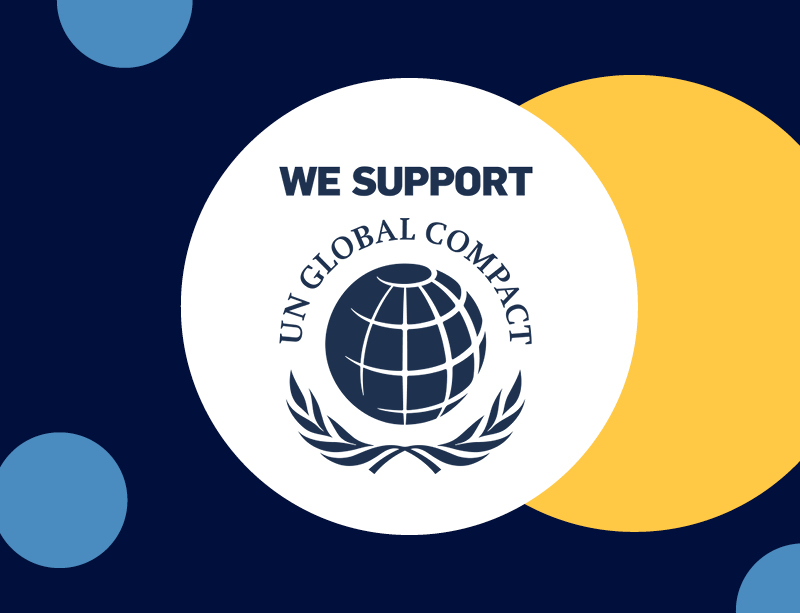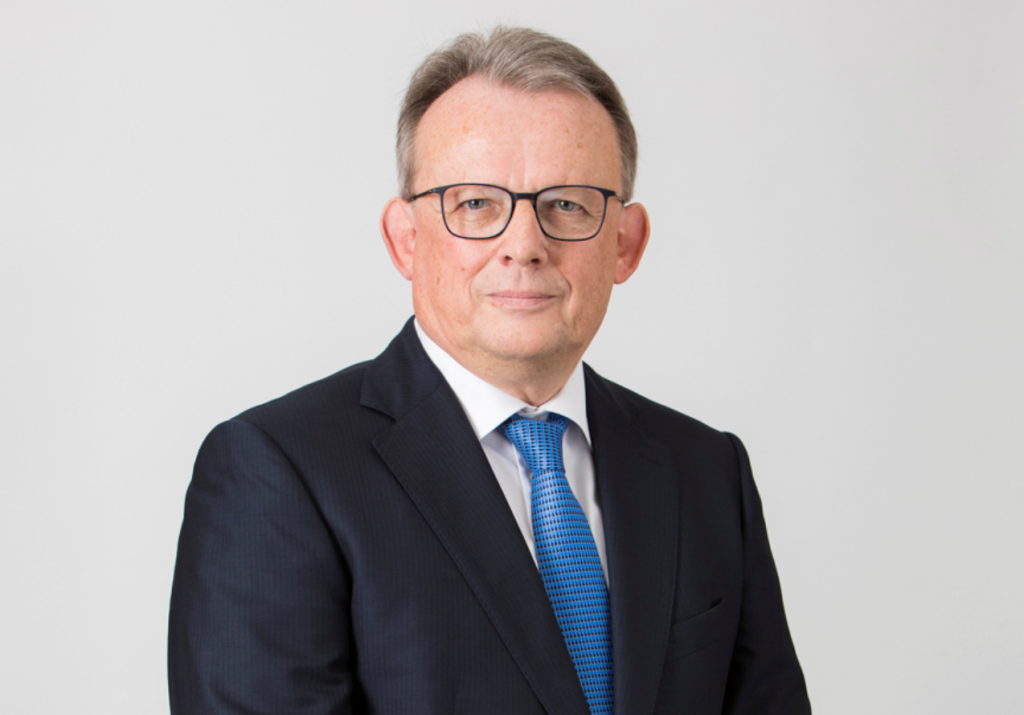
For a fair and sustainable world
Working to improve the sustainability and social responsibility of business is one of Kuraray’s core corporate values. Now Kuraray has joined the United Nations’ Global Compact. As the United Nations’ biggest initiative, the Global Compact is a platform for companies and organizations with a strong commitment to responsible business development. All members give a commitment that they will actively protect human rights, promote fair working conditions, protect the environment and the climate and combat corruption. In other words, they act as role models to promote social responsibility.
Businesses have a special responsibility to help make our world more sustainable and reduce social inequality.
Dr. Matthias Gutweiler, Managing Director of Kuraray in Europe and a member of the Board of Directors of the Kuraray Group in Tokyo
“At Kuraray, we already have a strong commitment to socially and environmentally compatible business practices, for example, by developing sustainable plastics and technologies that protect the environment. We also support regional projects such as the Rhine-Main Energy Efficiency Network at our site in Frankfurt, Germany. By signing the UN Global Compact, we are continuing that commitment beyond the company. The UN Global Compact offers a unique platform for cross-sector and cross-border debate on making globalization equitable. We are happy to contribute our experience.”

15,000 companies and organizations committed to a fair global economy
The UN Global Compact is the world’s biggest initiative for responsible corporate management. More than 15,000 companies and organizations from all areas of society, politics and the academic world in more than 160 countries have already given a commitment to act in a socially and environmentally compatible manner. At the heart of the UN Global Compact are ten universal principles (see box), focusing on human rights, labour rights, the environment and preventing corruption. In addition, participating companies and organizations support the United Nations’ 17 Sustainable Development Goals (UN SDGs). The shared aim is to create an inclusive and sustainable global economy that benefits all people, communities and markets worldwide.

An ambitious sustainability target: climate neutrality at all sites
By joining the UN Global Compact, Kuraray is bundling its competence and contributing its sustainability expertise at international level. At the same time, Kuraray is continuously extending its activities in the fields of environmental protection, business and social responsibility. “At Kuraray, we already have high standards in the four core areas of the UN Global Compact, namely human rights, employment standards, the environment and preventing corruption. We now want to build on that,” says Dr. Anja Lacqua, Product Steward in the QHSE & PS department at Kuraray. “A good starting point is our new global sustainability concept, which sets considerably higher environmental targets. We are currently examining ways to make all our sites completely carbon-neutral. To achieve that, we are focusing on scope for local and international cooperation.”
Energy efficiency network and first man-made leather containing recycled nylon
Kuraray is involved in many social projects in Europe and Germany and develops technologies that reduce environmental impact. Here is an example: in spring 2020, Kuraray joined the Rhine-Main Energy Efficiency Network. As part of this network, it is working with other companies to make the city of Frankfurt am Main climate-neutral by 2050. Kuraray markets a number of sustainable, high-performance alternatives to fossil-based plastics, for example, Plantic bio-based barrier film and the bio-elastomer Liquid Farnesene Rubber. Last year, Kuraray presented the world’s first microfibre nonwoven containing nylon made entirely from recycled materials. As a high-quality man-made leather, this product helps improve the circularity of the fashion industry.
The ten principles of the UN Global Compact
Human rights:
- Businesses should support and respect the protection of internationally proclaimed human rights; and
- make sure that they are not complicit in human rights abuses.
Labour:
- Businesses should uphold the freedom of association and the effective recognition of the right to collective bargaining;
- the elimination of all forms of forced and compulsory labour;
- the effective abolition of child labour; and
- the elimination of discrimination in respect of employment and occupation.
Environment:
- Businesses should support a precautionary approach to environmental challenges;
- undertake initiatives to promote greater environmental responsibility; and
- encourage the development and diffusion of environmentally friendly technologies.
Anti-corruption:
- Businesses should work against corruption in all its forms, including extortion and bribery.




